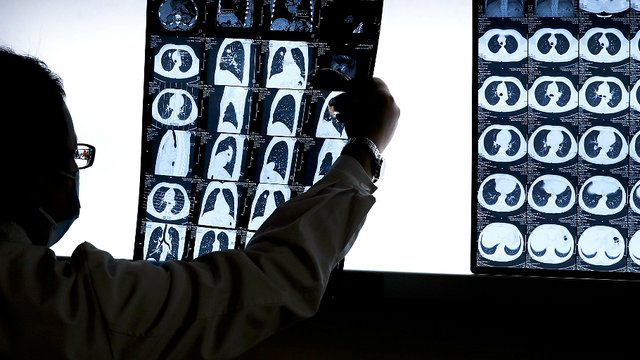50 cancer cases a day in Wales
22 February 2017, 13:09

Public Health Wales says the number of cancer cases has increased by ten per cent in the last decade.
New figures for Wales revealed that a total of 19,088 new cases of cancer were diagnosed in 2015 compared to 17,389 in 2006.
Officials said there is a "long-term trend of increasing numbers of new cancer cases in the population of Wales'' as a result of people living longer and changing cancer risk factors in our society.
The cancer rate for men in Wales is consistently the highest, compared to other UK countries. For women living in Wales, the rate has remained the second highest.
Dr Dyfed Wyn Huws, Director of the Welsh Cancer Intelligence and Surveillance Unit at Public Health Wales, said: "Our new statistics provide the most up-to-date, reliable and complete picture of cancer incidence in Wales.
"Breast, prostate, lung and bowel cancers remain the commonest cancers in Wales in 2015.
"The largest percentage increases were seen for liver cancer, melanoma skin cancer, and mouth and throat cancer between 2006 and 2015.
"There were also increases in the rates of kidney cancer, breast cancer, and cancer of the womb.
Dr Huws added: "We know that up to 4 in 10 of cancer in the population may be preventable.
"With an increasing number of cancer cases each year, cancer control is possible and important for future generations and for keeping rising health service demand in check."
Lynda Thomas, from the charity Macmillan Cancer Support, said: "More people are being diagnosed with cancer than ever before, and behind these vast statistics are around 320,000 individuals in England and Wales having an incredibly tough time.
"Everyone who is diagnosed with cancer experiences their own personal struggle, which could include depression, the unexpected financial impact cancer can have, or the potentially devastating consequences of treatment.
"The fact that cancer waiting-time targets are regularly missed is another warning sign of services struggling to cope.
"We strongly believe action must be taken to fully equip the health service to meet this ever-increasing need."







